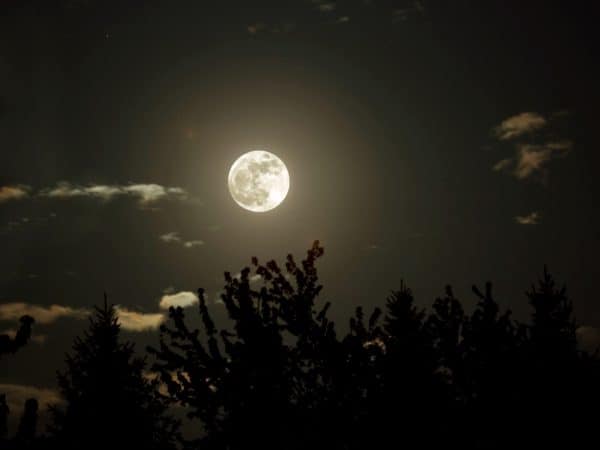An October full moon is coming, but November’s Supermoon will be historic

 The moon, if you didn’t know, has been a constant fascination for romantics young and old, with prime evidence being the multitude of monikers tacked onto our one and only satellite over the years. April’s full moon is the Pink Moon, according to some North American traditions, while June’s is the Strawberry Moon and December’s is, simply, the Cold Moon.
The moon, if you didn’t know, has been a constant fascination for romantics young and old, with prime evidence being the multitude of monikers tacked onto our one and only satellite over the years. April’s full moon is the Pink Moon, according to some North American traditions, while June’s is the Strawberry Moon and December’s is, simply, the Cold Moon.
But here we are in October, with what the Farmer’s Almanac refers to as the Hunter’s Moon, in reference to its ability to light the way for fall hunters in search of late night game. Appearing on the evening of the 15th this year, however, the Hunter’s Moon will also be, with more astrological flair, a Supermoon.
Not originally a term used by scientists, the idea of the supermoon has caught on and become part of regular moon parlance since first coined by astrologer Richard Nolle some 30 years ago. The phrase refers to a new or full moon which takes place when the moon’s orbit takes it particularly close to the Earth (within 90 per cent of its closest possible range, so the definition goes).
Not necessarily a rarity, supermoons take place roughly four to six times a year. According to the experts, they will appear on average 14 per cent larger and 30 per cent brighter than other moons, with the close proximity having a distinct effect on the Earth’s tides.
Distinct, but minimal, according to NASA’s James Garvin, chief scientist at the Godard Space Flight Center. “According to the most detailed studies by terrestrial seismologists and volcanologists, the combination of the moon being at its closest to Earth in its orbit, and being in its ‘full moon’ configuration (relative to the Earth and sun), should not affect the internal energy balance of the Earth since there are lunar tides every day,” says James.
But even more impressive will be November’s supermoon, appearing on November 14th and producing the closest full moon to Earth not only in 2016 but since the start of the 21st century. Dipping a mere arm’s length away at 356,509 kms, the full moon in November will not again get this close until November of 2034.
Hopefully, clear skies will allow for gorgeous moon views this week and again in November, but if you’re ready for your lunar close-up right now, take a gander at these awe-inspiring images of the moon, taken by the Japanese space program’s Kaguya (Selene) lunar orbiter. Launched in 2007 and completing its mission back in 2009, Kaguya and its full slate of HD quality images and video have only now been made available to the public, including many shots of Earth rising above the moon’s pale horizon.
October will also be witness to a unique star-gazing event, when the moon in its gibbous (more than half-full) phase can be seen crossing through the constellation Taurus and actually covering over the red orange star of Aldebaran which marks the eye of the bull –thus, causing Taurus to “blink.” The event will best be seen in eastern parts of Canada and the United States.
Below: A Summer of Super Moons

